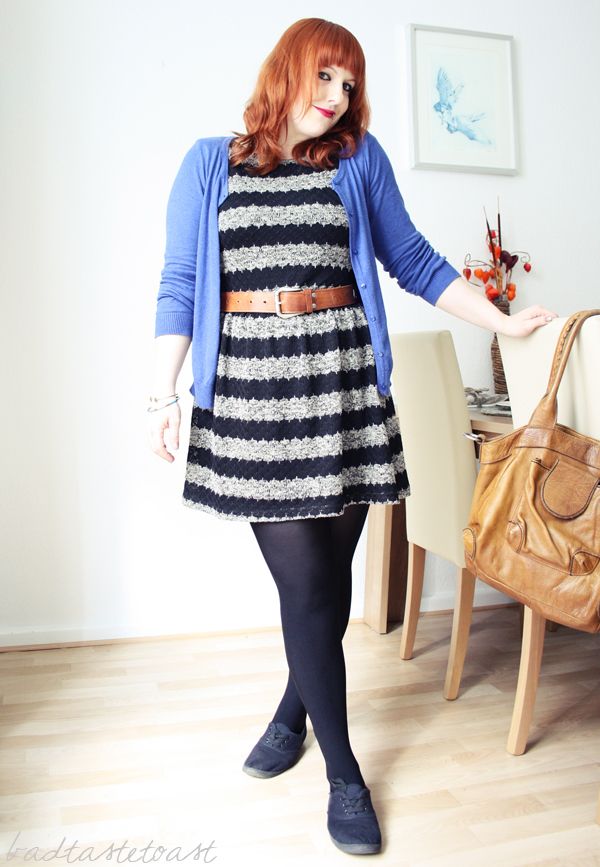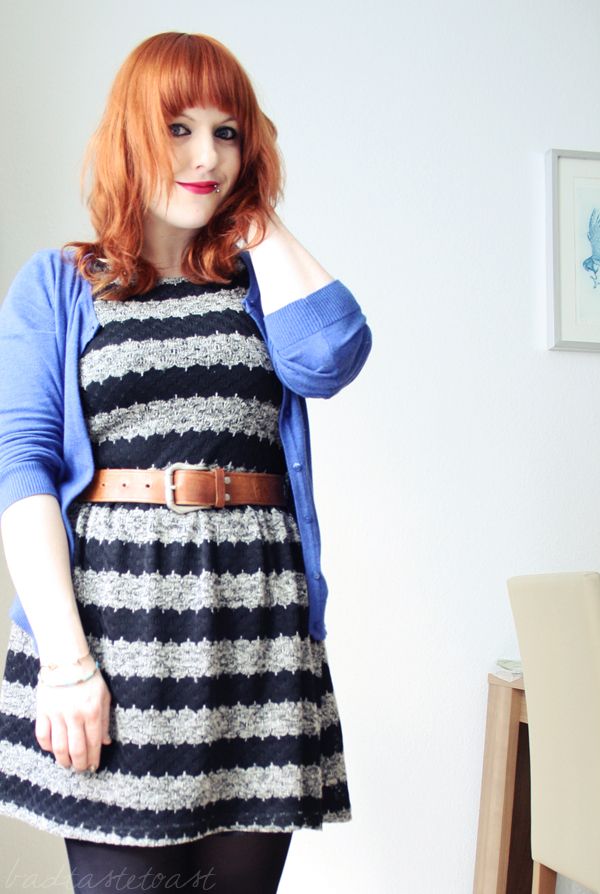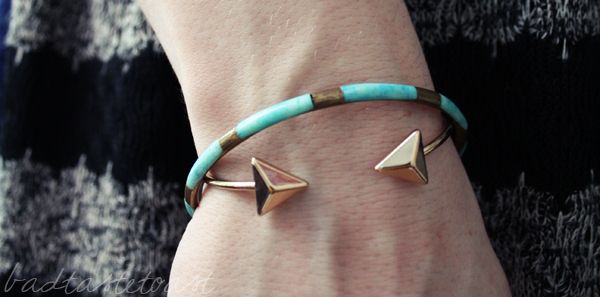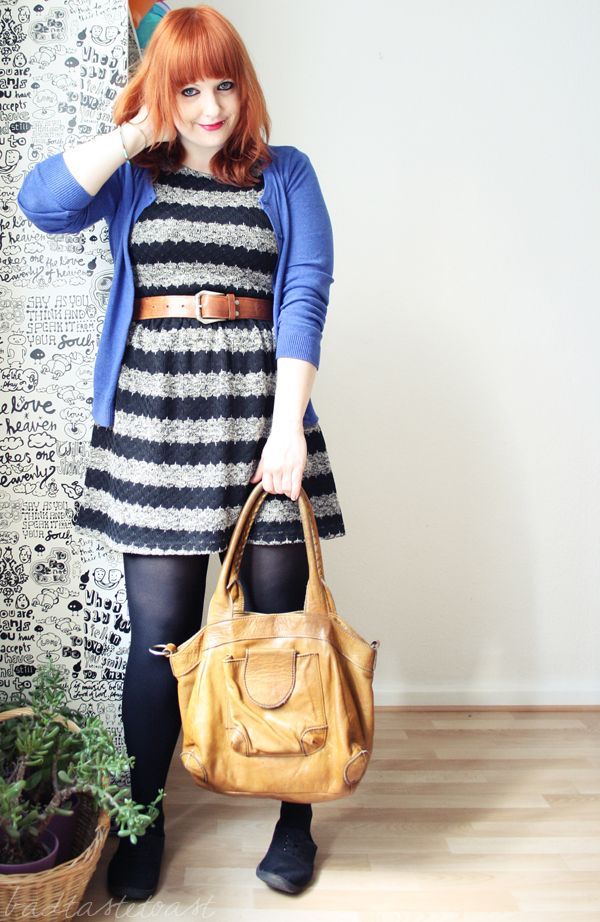Hello loves!
The other day a friend's comment on Facebook called my attention and I've been thinking about it lately. Her comment went something along the lines of
"Since the opening everyone's running around with Primark bags, I'm so disgusted! Where does the clothing come from? Please read up on it!"
It is really hard to find out the truth about the circumstances under which c think ertan brands produce their items, but we're all clever enough to conclude that t-shirts for 3 € are most likely not fairtrade products that are produced under employee-friendly conditions. Instead they're probably from sweatshops in Bangladesh (or other poor countries) where people struggle to make a living with their really low wages - at least that's the worst case (and most often true) scenario.
I don't want to support this industry but I also don't want to be forced to spend 60 € on a t-shirt. Of course it's awesome to buy products that are 100% eco-friendly, fairtrade and were produced by sewers who get a decent wage but only if I can afford it.
At the moment my monthly income allows me to spend 50-100 € on clothing (or electronics or books or music or whatever luxury good I prefer). Yes of course I could buy cheaper groceries (but we have the same problem here: fairtrade and/or organic food is pricey), I could move to a cheaper flat and cut down on a million other things to save up for these fairtrade sweatshop-free brands which offer 60 € t-shirts - but hey no one can expect this from me, let's be realistic here! You might say I'm an egoistic bitch but I say there is a limit when it comes to sacrifices. 99% of the people in the world would never lower their life standards to improve the life of a sewer in Bangladesh because 99% of the people in the world are not Mother Teresa (that's my personal opinion, no official statistics by the way).
I'm not an egoistic bitch but I'm also not Mother Teresa, I just think there are other things we can do to indirectly boycot certain brands that exploit workers in poor countries: thrift shopping, upcycling and swapping.



It is only a small change but it's at least something to buy second hand clothes or upcycle or swap items.
I know it's ironic to post an outfit which includes Primark and H&M with such a post and I have to admit I bought this dress directly from Primark, but the cardigan, belt, shoes and bag are second hand. Sometimes I can't help but shop at the high street shops, however I try to mainly buy my clothing and accessories second hand on flea markets, in thrift shops or via Ebay. I've also swapped a lot in the last two years.
I think it's a really good thing that vintage clothing has become trendy again over the past years and that many people have developed an awareness of the fact that second hand does not mean shabby and worn-out.
Flea markets are so popular again now, they have been made more hip by adding live music, good food and organic lemonade stands. People are celebrating the reselling and buying of second hand stuff, the reuse, refurbishing and upcycling of old things. And the positive effect behind this new movement: we don't buy (as much) from high street shops and popular brands anymore.
Same thing with Etsy, DaWanda and similar websites: if you buy an item there it is handmade or second hand, you support small independent brands and self-employed designers and the money goes straight into their pockets.
Last but not least swapping: If you aks me it's the most genius concept ever. You can get rid of what you don't need anymore and get new things without even spending money. I once had the chance to talk to one of the founders of the very successful German swapping website Kleiderkreisel and she told me this idea for the website emerged out of the thought that it is wasteful and irresponsible to throw away clothes and spend money on new ones when you can swap instead.


I am interested in your opinions. Do you think about where the clothes come from when you buy them? Do you care or ignore the sweatshop problems in the fashion industry? Do you support fair brands and the higher prices for an overall better product and production quality?
Let me know what you think in the comments.
Happy Thursday! :)







It's refreshing reading your very conscientious thoughts concerning how, where and under what circumstances products are made and of what. Most of the time when I'm commenting on a fashion blog post I don't stop to think about things like that. When companies use prison labour or sweatshops or are taking advantage of desperate starving people it's usually not spoken about. There was a film made that exposed some of the companies using prison labour in my country but most of the theatres didn't play it.
ReplyDeleteI have noticed there are bloggers I follow who love vintage, have Etsy shops or go thrifting.
I guess I should pay more attention to where and how all the blouses and full briefs I wear and review on my blog are made. I always feel better when I believe they're made under good conditions close to home and disappointed to find that companies that used to make full briefs here at home are having them made wherever the labour is cheapest. Having them made cheaply doesn't necessarily mean they're priced cheaply though.
Moving on to your outfit and beauty:
Your Primark dress looks beautiful. I love how you styled it. Your hair and makeup look very pretty. I love your hair-colour, black eyeliner and lipstick.
http://www.full-brief-panties.blogspot.com/
I love swapping clothes, I have done it twice lately and love getting "new to me stuff" I actually can't wait to style the new blouses, hat and summer shirts I got through swapping. I will not buy designer fakes anywhere. For example, I have two authentic Michael Kors purses that I love and one I am sure was made in the streets somewhere that my mom gave me (I don't use it). I thrift and swap- just my thing. Rachel xo
ReplyDeleteI am really conscious about where my clothes come from, but it's a tricky issue. I buy second hand and vintage most of the time, but sometimes you need something new (underwear for example, or jeans that fit!) and trying to decide which high street shop is the "most ethical" is such a minefield. I also don't have the money to buy from organic / fairtrade brands. At the end of the day, I think if we do our best to make ethical purchasing decisions that's the most important thing! I do think boycoting is important and powerful, but its also not going to change anything unless you tell companies why you're boycotting them! xx
ReplyDeleteHallo Carina, mir geht es so, dass ich auch bei Primark kaufe. Ein shirt für 60 € ist für mich utopisch. Trotzdem gehe ich regelmäßig zum second hand shoppen, da man dort besondere Teile findet, die nicht unbedingt teuet sind. Meine Kleider verkaufe ich bei kleiderkreisel weiter, so haben andere auch etwas davon und man tut der umwelt etwas gutes.
ReplyDeleteDas ist wirklich ein sehr interessantes Thema. Habe eine tolle Reportage im Fernsehen dazu angeschaut. Siehe da nicht nur die "billig" Läden lassen dort zu unfairen Bedingungen produzieren, sondern auch z.B. Hugo Boss, Armani, Ralph Lauren. Ich würde auch gerne mehr Geld für fair gehandelte (eco) Kleidung ausgeben, aber die Sachen sind doch wahnsinning teuer. Also ich persönlich habe nichts gegen Primark und würde dort auch einkaufen, wenn wir einen Shop hier hätten. Das Kleid finde ich übrigens bezaubernd :D
ReplyDeleteThis is one of my favourite dresses of yours and it looks amazing on you. I love your eye liner like that. That is how I like mine but I find it hard to do it like that above the eye.
ReplyDeleteI love recycling/swapping the old and reinventing it. The tough thing, which you basically point out, is that we don't know where stuff comes from. Worse, recycling old stuff doesn't always mean we'll have fought against it because it could have been produced under the same circumstances, however, it can help not investing in someone else's hardships. We live in a supply and demand world. We aren't going to avoid the grittiness of brands, and I believe instead of trying to halt productions altogether, we should help force manufacturers to change the way things are made.
ReplyDeleteIch kaufe zu 90% second hand - da bekomme ich auch tolle Klamotten für wenig Geld und unterstütze die Klamottenindustrie aber nicht. Das finde ich für mich einen guten Kompromiss, die auch nicht endlos Geld zur Verfügung hat...
ReplyDelete-Kati
I used to buy a lot of second hand clothing, but recently have mainly been buying from the high street, mainly because I've gotten lazy and find it so easy just to nip into Topshop etc after work, rather than properly looking through second hand shops like I used to enjoy. I'd like to change this though, and get back into really thinking about what I purchase, and where from. Great post!
ReplyDeleteI thought about this a lot last year as well, and I think that it's great that you're thinking about it too! I actually compiled an ethical fashion directory of cute, relatively cheap stuff, if you wanna have a look: http://www.pineneedlecollective.com/p/ethical-clothing-directory.html
ReplyDeleteI thought I commented asking you this question before but I guess it didn't appear but may I feature this post in my "Bloggers Who Have Inspired Me" post coming up? I would give you and your blog credit linking the post back to this original. Just let me know either way? Thanks hun! Rachel you can comment your answer or e-mail me at Rachel.garay@me.com
ReplyDelete